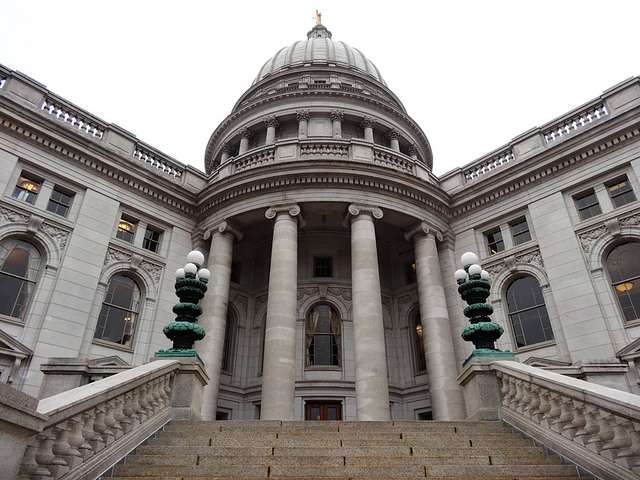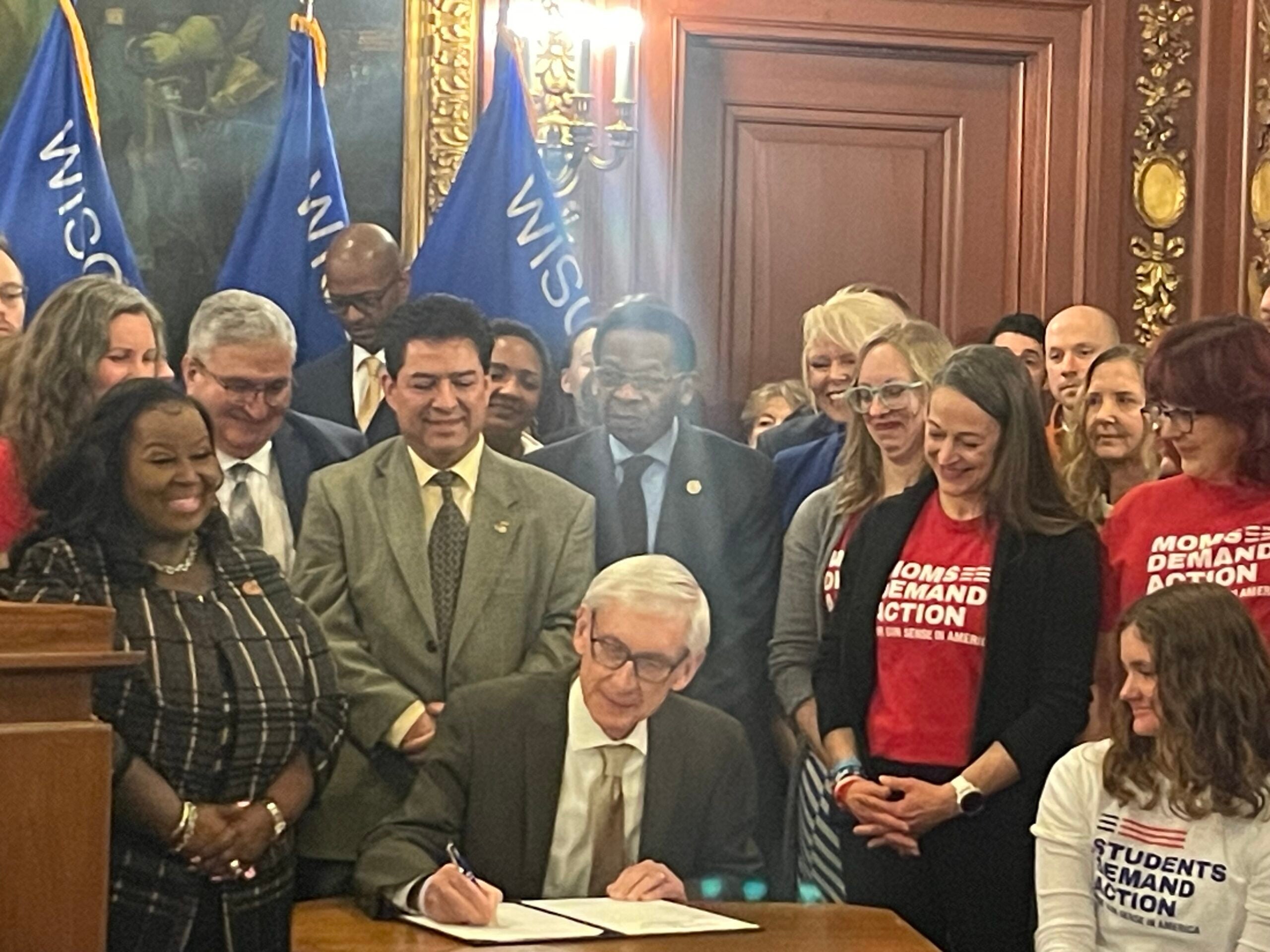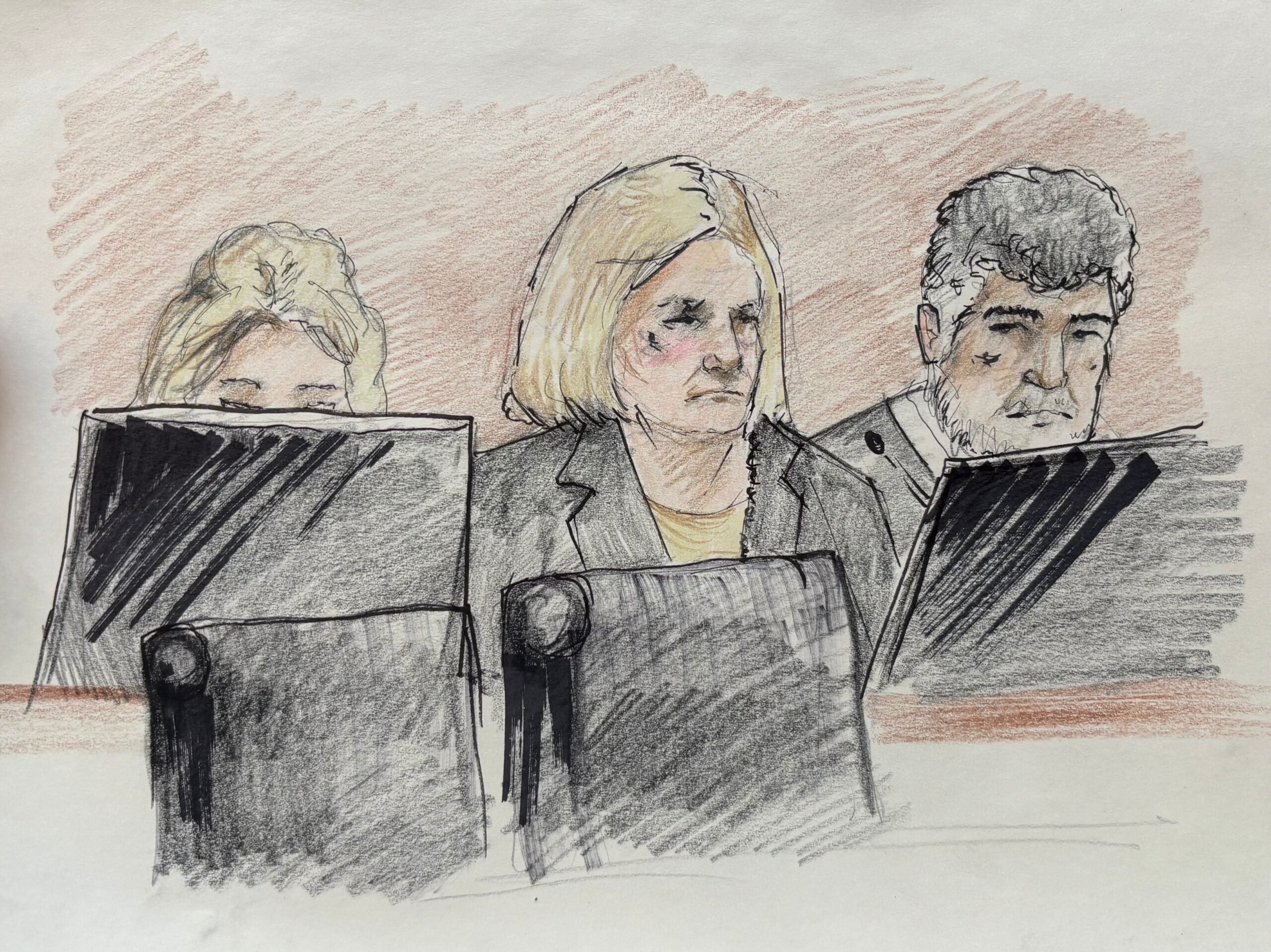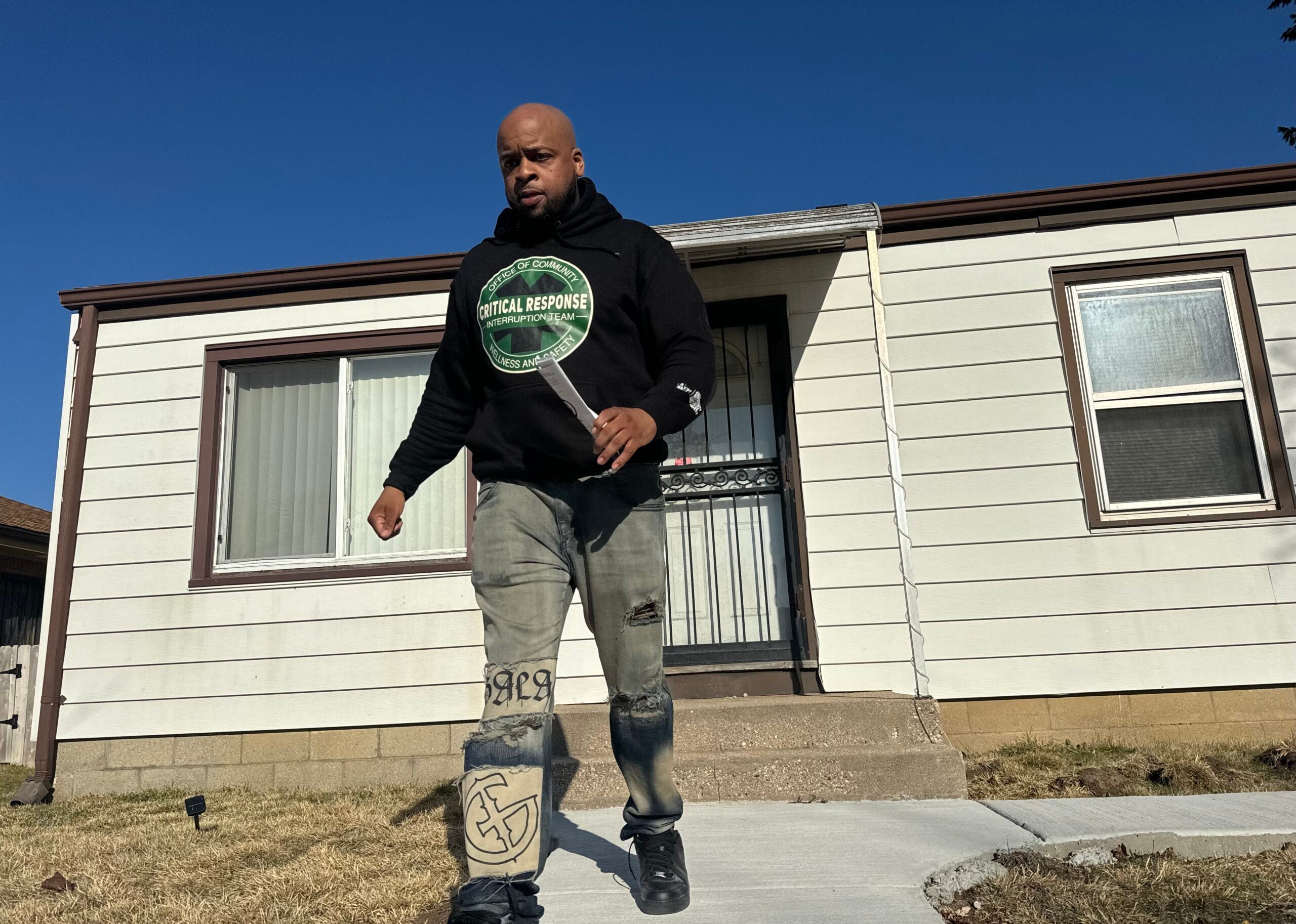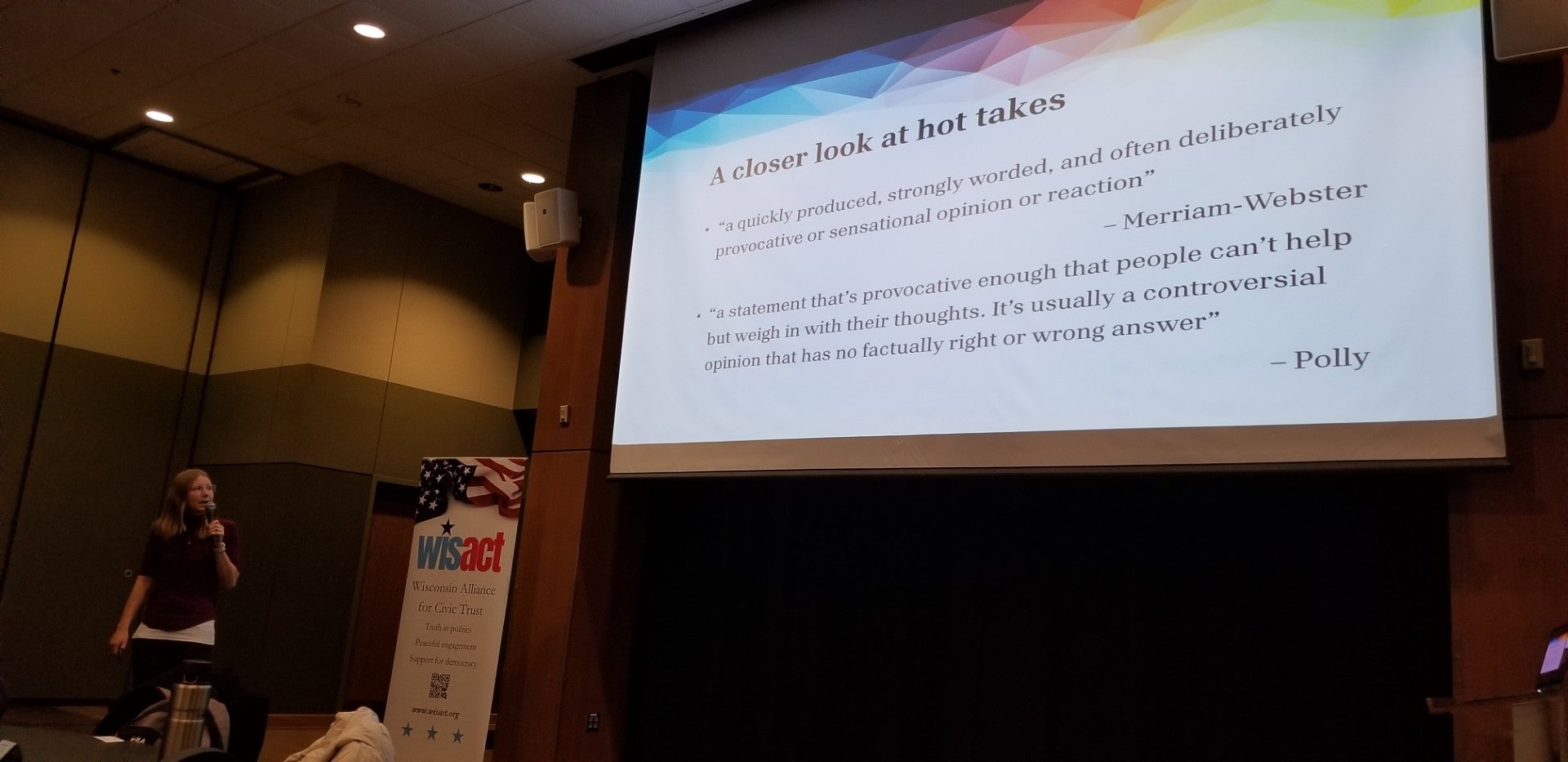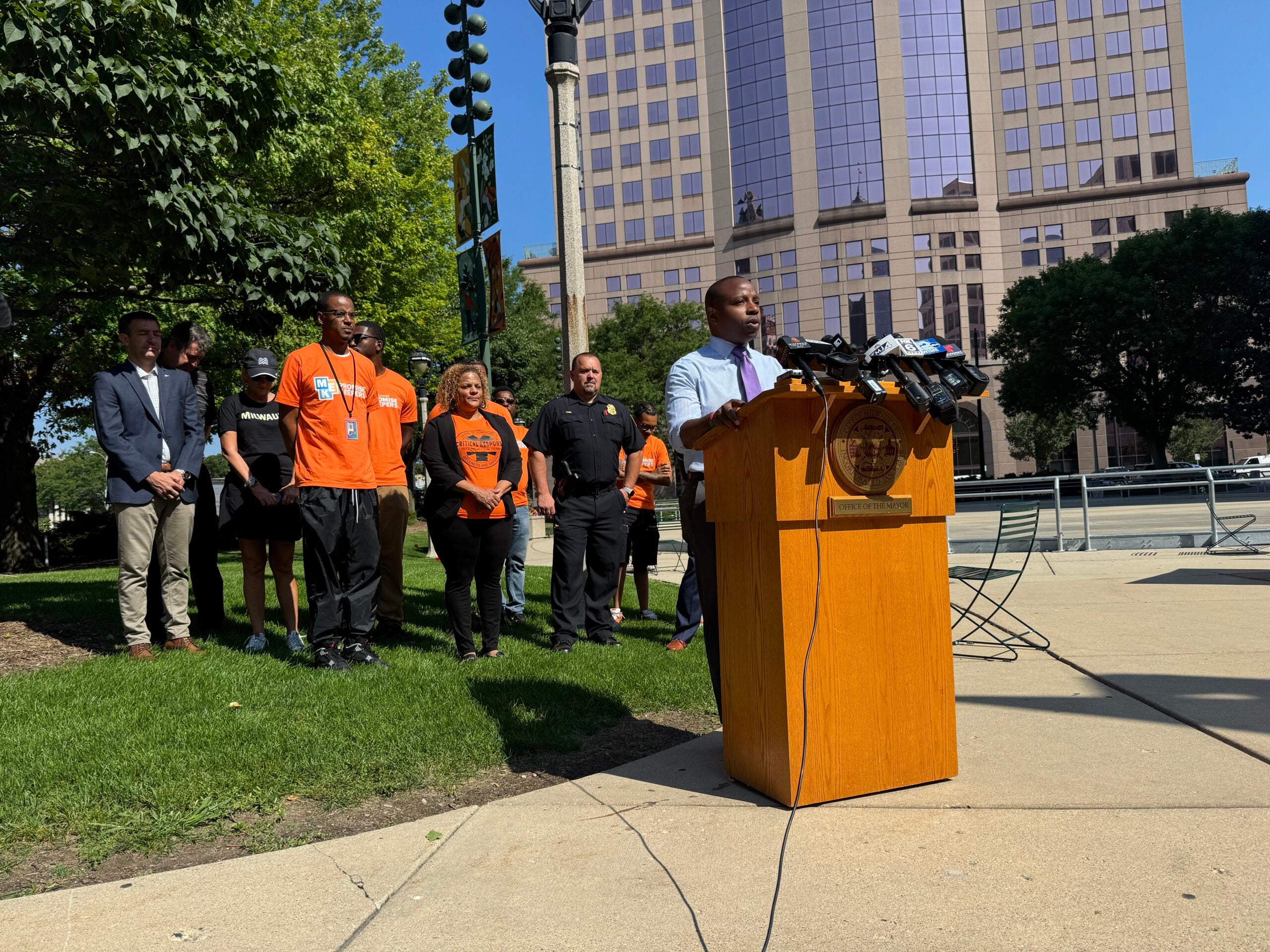The League of Wisconsin Municipalities, an advocacy organization for Wisconsin’s cities and villages, is urging the state Legislature to take action to prevent incidents of mass violence in communities.
The organization read a letter they plan to present to Gov. Tony Evers, Assembly Speaker Robin Vos, R-Rochester, and Senate Majority Leader Scott Fitzgerald, R-Juneau, Wednesday during a news conference.
Wauwatosa Mayor Kathy Ehley started the conference by reading the letter, stating that more than 180 leaders and other community officials signed it. Those leaders represent over 140 communities across Wisconsin. The largest city being Milwaukee and the smallest being Kennan in Price County.
News with a little more humanity
WPR’s “Wisconsin Today” newsletter keeps you connected to the state you love without feeling overwhelmed. No paywall. No agenda. No corporate filter.
In the letter, the league states that Wisconsin “cannot continue the cycle that involves wringing our hands for a week and then moving on to business as usual.”
The organization wants the governor and Legislature to find middle ground and work together to decide what can be done to help minimize mass violence.
Milwaukee Mayor Tom Barrett said during the conference this has to be a bipartisan effort.
“We are looking for bipartisan solutions,” Barrett said. “We are looking for solutions that are going to fit Beaver Dam, they are going fit Wauwatosa, they are going to fit Green Bay and Milwaukee. All parts of the state. That’s what we are looking for here today.”
The letter continues by pointing out that local municipal first responders are the ones who have to deal with these incidents. It also asks for additional tools to help curb violence.
The league provided the example of Wisconsin Act 143 as a good starting point for the state government to look back on. The piece of legislation was introduced following the mass shooting at a high school in Parkland, Florida last year. It set aside both resources, training for schools and helped establish frameworks for collaboration. The League stated in the letter that, “the need for training and collaboration is every bit as necessary at other community places, both private and public.”
Some cities did not sign the letter but Ehley said the league didn’t get any negative feedback.
The league is not supporting or opposing any specific bill or action. Ehley said introducing the letter is the start of voicing community concerns.
“I truly believe in patience and persistence. I know there’s not one specific thing that’s going to make a dramatic difference. What we have to do is we have to start coming to some consensus,” she said.
Wisconsin Public Radio, © Copyright 2026, Board of Regents of the University of Wisconsin System and Wisconsin Educational Communications Board.

